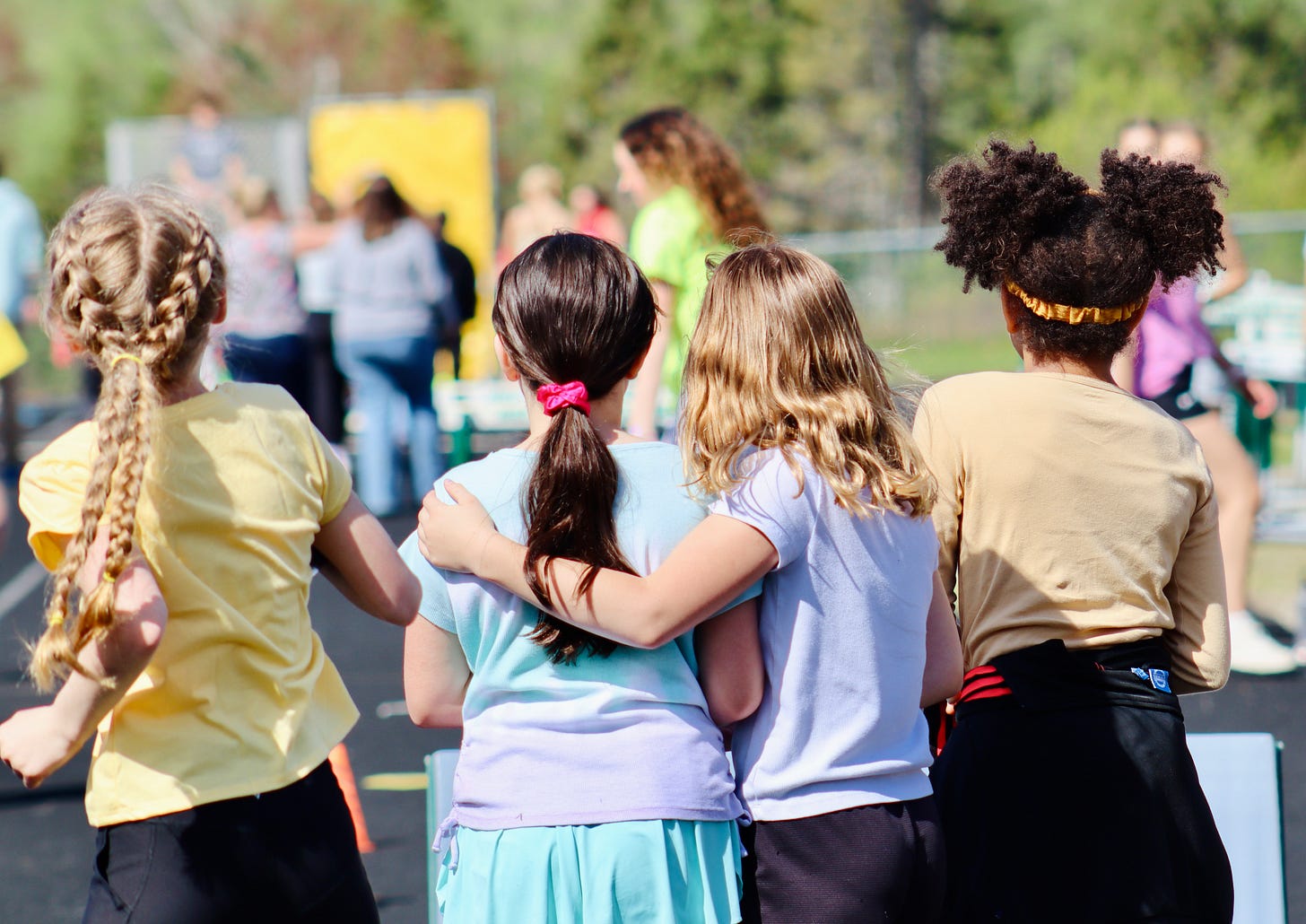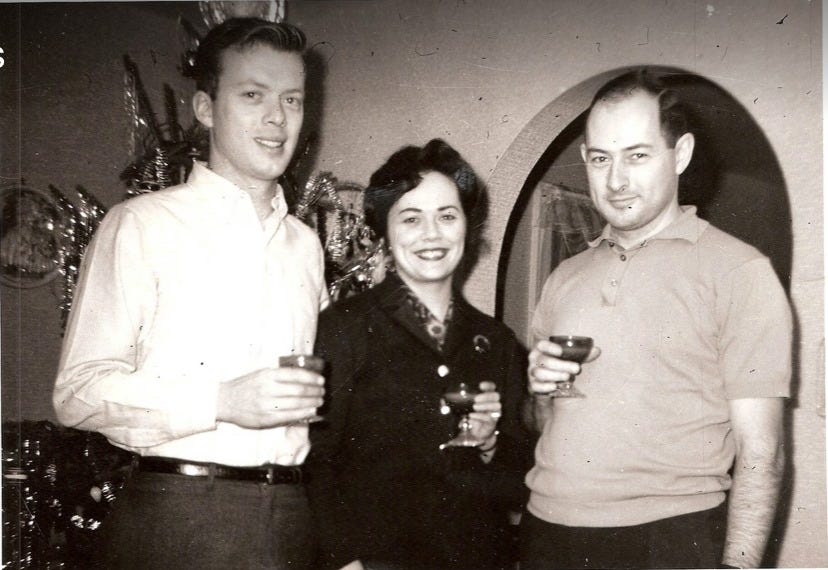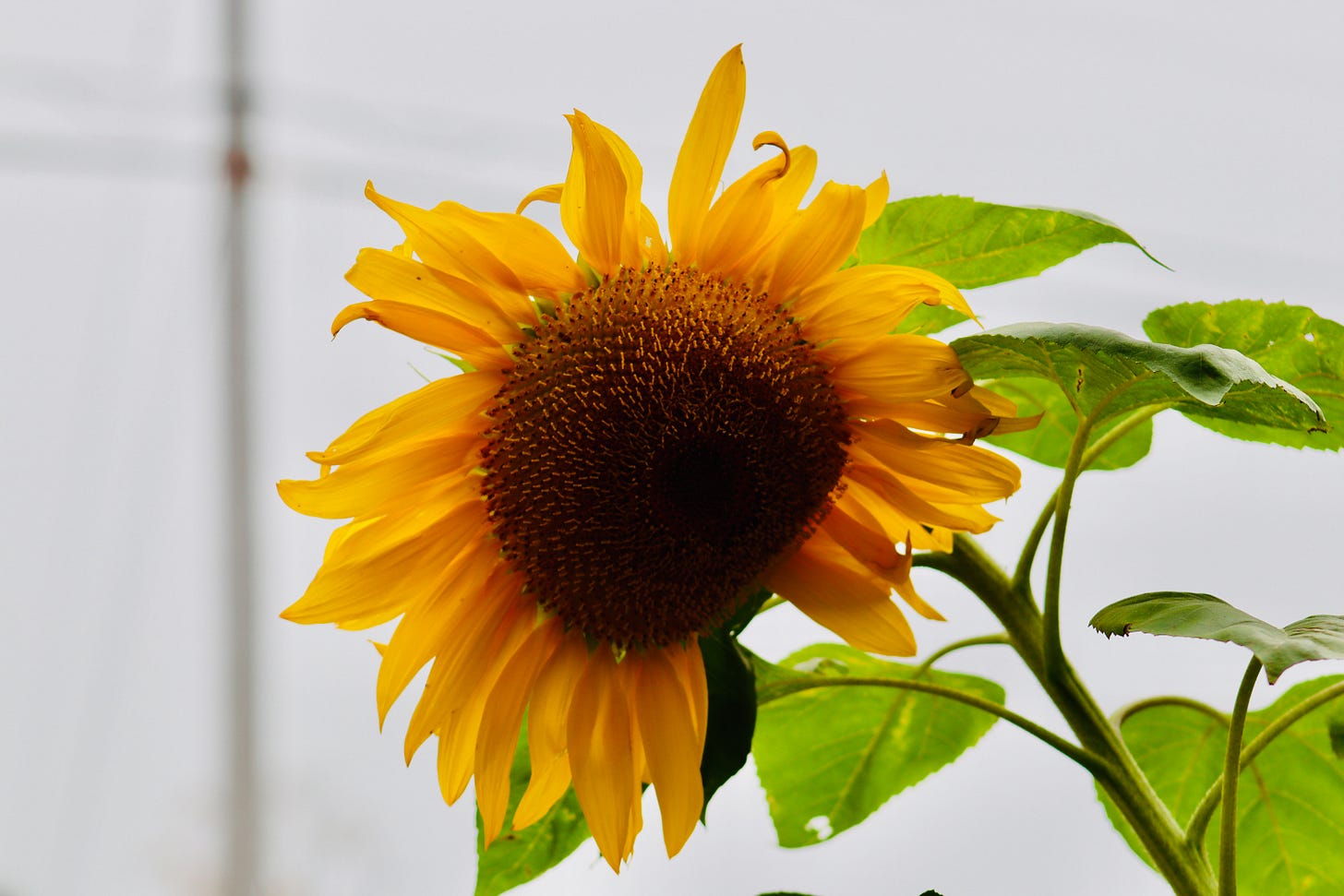I Wish I Could Give You This Feeling
What My Mom—and a Little Boy I Never Got to Meet—Taught Me About Happiness
This week someone I love told me they didn’t see the point anymore.
The things they want: a purpose, love, success (in the way they define it) didn’t seem possible.
I can’t change that for them no matter how badly I want to.
And honestly, I can’t fix it when so many of my friends and acquaintances and neighbors who hurt, who plague themselves over past mistakes and choices, who react out of fear and make so many decisions from that space.
And I really really want to be able to set them on a path that makes them feel better that makes them realize how amazing they are and how lucky this world is that they are in it.
That want of mine that was so powerful this week made me think about my mom.
My mom had diabetes like her father and her grandfather. She also smoked, which complicated things. She was dying for a long while. She’d fight back. She’d get out of the hospital and go home again.
She did this a lot.
She clung fiercely to life despite everything.
I’ve told this story before, but right before my mom died and was in a hospital in New Hampshire, she asked for some vanilla soft-serve ice cream.
She was terribly weak, terribly shaky. She was seeing her beloved brother who was already dead and occasionally calling out to him. She’d lift her arm up into the air as if she was reaching out to him. She’d tremble from the effort.
“Please can I have some ice cream?” she asked the nurses.
The nurses loved her. Like my little hobbit dad, she was a charmer.
So, the nurses brought her that ice cream and after her first spoon of it, my mom closed her eyes, absolutely blissful.
She opened her eyes a moment later and said to my sister Debbie, my daughter Emily, and me, “Do you want some? It’s so good.”
Even when she was about to die, my mom wanted to share the source of her happiness, to give it to us, too.
I will always remember that. I wish I could somehow gift my mom’s zest and bliss and fight to the people I love who hurt, who are ready to give up. I wish that when I am happy I could share that with people who aren’t, just give a bit of it away the same way my mom wanted to.
My mom went through a lot in her life and she always—always—managed to try to share her happiness and her joys and even when she was sad or angry or bitter, there was a great element of joy to her, a joy that she leaned into.
Erin Benson wrote a heartbreaking and brilliant article on Medium five years ago titled “What My Son’s Final Words Taught Me About Happiness and the premise behind it is that “joy comes when we let go of the idea that we deserve it.”
She talks about her son’s death and how as he was dying she asked her little boy what could she do to make him happy.
She wrote,
“Sam looked at me, his face full of confusion, and said, ‘I am happy, Mom.’”
I am a person who sobs a lot when I read about love and loss, but when I got through that crying, I managed to read Benson’s next words and those are the words that I want you all to read.
“When I think back on Sam’s final words, ‘I am happy,’ I am awestruck and humbled. I don’t know how Sam found happiness in a moment like that. A moment in which Death had his long, stringy fingers around his neck, stripping him of his ability to live. A moment in which he was preparing to leave us. A moment in which his mother was kneeling before him, pleading for a way to make him happy. Whether due to the wisdom created by a lifetime of illness or his young age or some innate gift bestowed upon him at birth, Sam possessed a grace that allowed him to see happiness even in a moment most of us would define as profoundly sad. I believe he looked around and saw a room full of people who loved him. It was that simple. At that moment, he wasn’t afraid of losing his capabilities. He wasn’t angry because he deserved better. He was content. He was loved. He could see that and it made him happy.
Happiness is not something you find externally but something you cultivate deep inside of yourself.
Sometimes I still think to myself, how dare we be happy without our Sam? How dare we celebrate? How dare we enjoy? How dare we, for one second, forget that Sam had brain cancer and died and that we are broken? But Sam’s words pull me out of that mental frenzy, back into the present, and I realize we are doing.”

For decades psychologist Martin Seligman has been studying happiness and coming up with tools to cultivate it. He calls his discipline “positive psychology.” It’s about building our own strengths rather than focusing on what we or society considers our weaknesses.
In an ABC News interview, Seligman said, “We used to think that a happy person was just someone who giggled a lot, but if you define it solely by how much you laugh, you confine yourself to one category.”
In The Good Life he categorized happy people.
“Some happy people are low on pleasure, but high on ‘absorption and immersion,’ meaning they take great pleasure in the things that they do.
“'Think of these people as hobbyists who become so immersed in their work that time ceases to exist,” Seligman said. “A person who enjoys gardening discovers that the day has gone by without notice, for example.”
“The Pleasant Life: This is someone who laughs a lot, and thrives on pleasures, such as eating good food. These are people who seem surrounded with contentment, pleasure and hope.
“The Meaningful Life: Those who apply their highest strengths and virtues for the greater good, as through charities and volunteer work, religion or politics.
“There are vast benefits to leading a happier life, Seligman said. A study of cloistered nuns found that those scoring high on happiness tests at age 20 lived the longest. (Cloistered nuns make for good research subjects, since variables such as environment and financial status are the same for all.)”
The point of that book is that you should find your happiness category, find your strengths, find your virtues, and then as ABC News says, “apply the qualities in such a way as to enhance your happiness-generating category.”
Happiness. Contentment. Purpose. They are all such huge concepts, aren’t they? Yet Sam even the day before he died knew that he was happy.
My mom, despite all her toils and troubles, did, too.
And I think—I hope—I have to believe that we can find that, too. And maybe we can find ways to share it with the people who need it and us the most.

LINKS TO LEARN MORE BECAUSE LEARNING IS WHAT IT’S ALL ABOUT
https://docs.google.com/document/d/1ZWE8q1tlRTawIAZploQkrqiq3QpHtDyY0e15kTSgyLg/edit#
https://humanparts.medium.com/what-my-sons-final-words-taught-me-about-happiness-89b638f81cfc
https://sourcesofinsight.com/the-pleasant-life-the-good-life-and-the-meaningful-life/
I send these emails twice a week. If you would also like to receive them, join the other super-cool, super-smart people who love it today.
*My WRITE BETTER NOW posts also come twice a week if you sign up for them, too, which you should. Cough. That’s me trying to sell. I am terrible at it, I know.
COMFORTING
I also have a once-a-week Substack over here and it’s mellow and I share a poem (not my own, God forbid, there’s nothing comforting about those), soup recipe, and other comforting things there. It’s just quietly hanging out there. You can come hang out, too.







You know, I just read this post while lounging in my living room. My husband, who is very I'll, is napping in his recliner. We have the "TV fireplace" on and a kitty sleeping on the couch. Through our screen porch door, we can hear the peepers and crickets making music outside. My husband just woke up for a minute and said, "This is nice." And it is. It's a moment of such pure contentment and happiness. Just like Sam, we've finally come to realize that these nuggets of comfort and love are what happiness is to us, even when you're dying. ❤️ Thank you so much for writing this and reminding me to appreciate these moments.